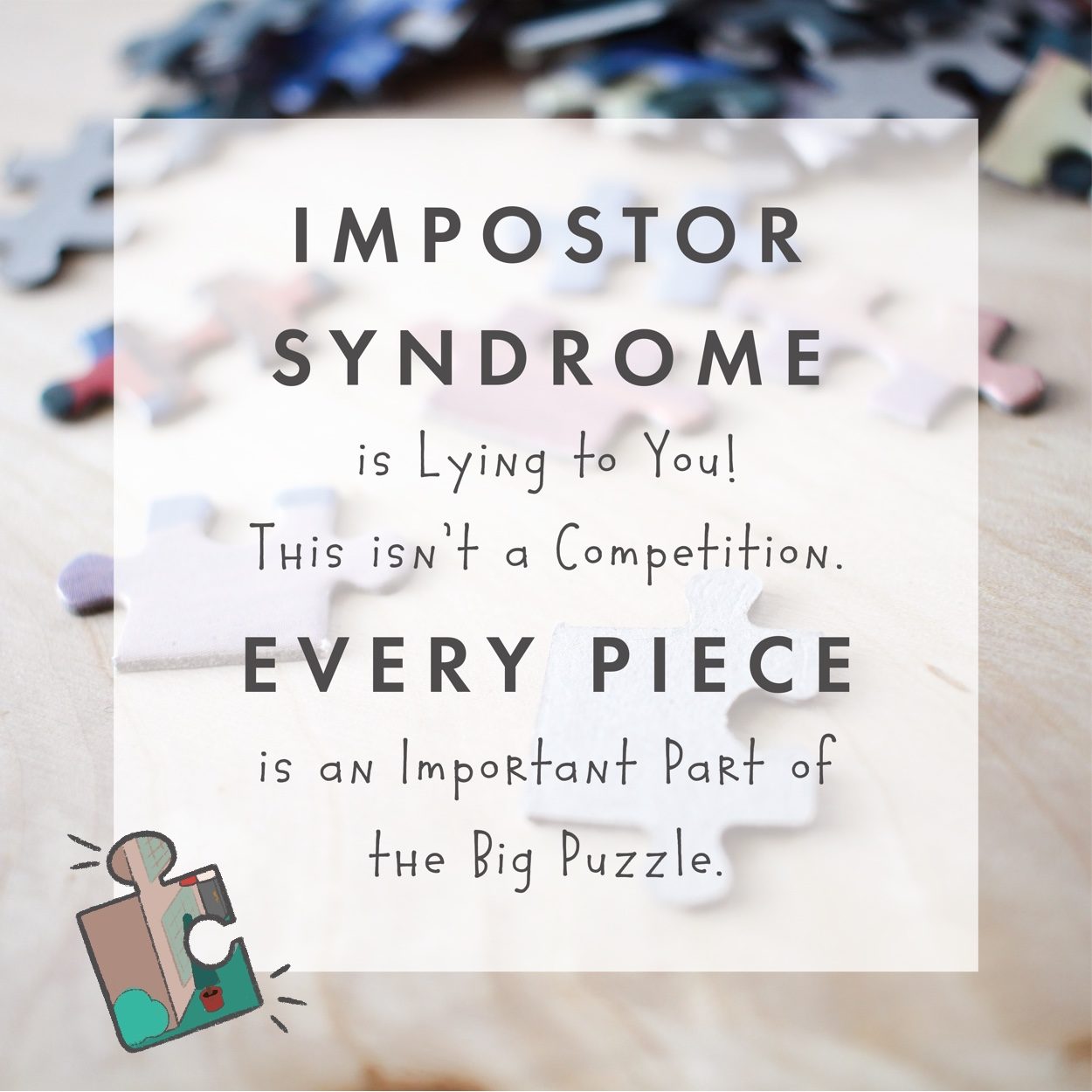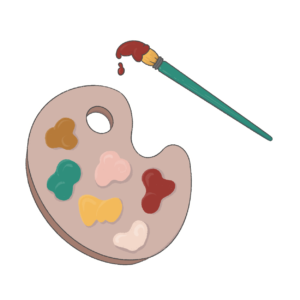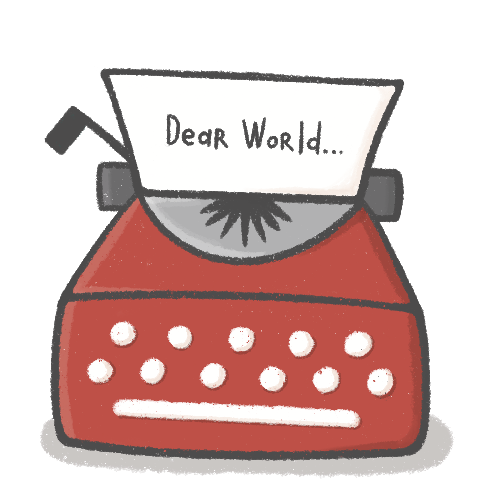Don’t Believe Impostor Syndrome; human value isn’t a competition.


Hate reading? Listen to the audio version of this article here.
Follow the podcast on iTunes, Player FM, Google Play, Spotify or wherever you enjoy listening to podcasts.
Hate reading? You can listen to the audio version of this article.
Follow the podcast on iTunes, Player FM, Google Play, Spotify or wherever you enjoy listening to podcasts.
Impostor Syndrome can affect anyone.
 But the experience of women, people of colour, and neurodivergent and disabled people with impostor syndrome should be viewed through an intersectional lens. Impostor Syndrome tends to describe high-achieving individuals who lack an ability to internalize their accomplishments and a persistent fear of being exposed as a fraud.
But the experience of women, people of colour, and neurodivergent and disabled people with impostor syndrome should be viewed through an intersectional lens. Impostor Syndrome tends to describe high-achieving individuals who lack an ability to internalize their accomplishments and a persistent fear of being exposed as a fraud.
Sound familiar? It should; a lot of entrepreneurs, creatives, and innovators have some form of impostor syndrome. We work hard and we do cool things – but marginalized people are also inundated with messages that our successes are “inspiring,” at best (which…don’t get me started on that term) — and unearned or hollow, at worst.
So when we receive kudos for a job well done, instead of feeling proud, we feel ashamed, because we believe deep down that we are faking it – putting on a mask that doesn’t belong to us.
And at any moment, they WILL ALL FIND OUT THAT IT’S ALL A BIG LIE.
I have written 11 books but each time I think ‘Uh-oh, they’re going to find out now. I’ve run a game on everybody, and they’re going to find me out.”
Maya Angelou
Since the term was created in 1978 by clinical psychologists Pauline R. Clance and Suzanne A. Imes, it’s shown up everywhere intelligent and talented women create.
Writers, academics, business owners, and writers. Creators, teachers, helpers, and scientists: we are none of us immune to Impostor Syndrome. Throw a rock and you’ll hit a creative person who is in the throws of impostor syndrome whiplash between confidence and shame.
The beauty of the impostor syndrome is you vacillate between extreme egomania and a complete feeling of: ‘I’m a fraud! Oh God, they’re on to me! I’m a fraud!’ So you just try to ride the egomania when it comes and enjoy it, and then slide through the idea of fraud.
Tina Fey
Although men do self-identify as having experienced Impostor Syndrome at a similar rate to women, many studies show that it is particularly common among high achieving women, and the resulting effects of the syndrome are far more pronounced in marginalized people. Anybody surprised by that? No? Okay – moving on.
My clients have almost all experienced impostor syndrome at some point.
Which isn’t surprising to me, in theory. I mean, they’re all freaking brilliant, they’re mostly ladies, and they are definitely perfectionists. It’s still shocking in the moment to hear a brilliant, successful, creative woman say, “Yeah but I’m just…”
 Nope. Stop right there! I’m not even going to let you finish that thought. Repeat after me: There is no human, creative endeavour that is “just” anything. It all matters. It is all important and challenging, and all creative efforts have value.
Nope. Stop right there! I’m not even going to let you finish that thought. Repeat after me: There is no human, creative endeavour that is “just” anything. It all matters. It is all important and challenging, and all creative efforts have value.
It is all amazing. If you create joy, you are amazing; if you create ease, you are amazing; if you offer community for a group of people with a common goal? You. Are. Amazing!
Whatever you create – whatever you do – is a part of the human cultural experiment, and the experience you accumulate while you are doing it is real. The impact you have while you are transferring that expertise to others is enormous. You simply have to own it.
Ask yourself what you really create, and stop believing the lie that says we must be THE expert on top of all history and future experts in order to be proud of our accomplishments.
Every little thing adds up to a far greater thing.
I have talked about how important it is for us to realistically affect the world around us, and I routinely focus on what kind of impact writers and business owners want to have on the world when I help them to decide what their project priorities should look like – but I can’t say it enough.
 It’s like the world we want to see is a giant puzzle being built, & every little piece needs to show up in order to build the thing. Who are you to stay home, when we need you so much?
It’s like the world we want to see is a giant puzzle being built, & every little piece needs to show up in order to build the thing. Who are you to stay home, when we need you so much?
When you see your own Impostor Syndrome in this way, maybe you can tell it where to go.
There are ways you can work to trust your voice more, and there are people like me out here who will shout about it at you until it sinks in, but it’s really down to you to kick this thing.
You need to see that what you offer is real, allow that your experiences give you a valuable perspective on the world, and understand that the passion you find in your purpose turns that perspective into something even more important in the world.
Even though the current state of human civilization revolves around endless productivity and competition, know that it’s not all on your shoulders, and you don’t need to beat anyone in any kind of race. You’re an important piece of the puzzle, but you aren’t out there all alone. You don’t have to be the whole thing in order to have value.
And then get on with it already! Because we need you and your message more than we need you to be a nice lady who knows her place.

Writing Process Cornerstone
Your Writing Process Matters. When a client or student of mine is struggling with any part of their writing, there are five things I examine in order to find the reason behind their difficulties. It’s like a doctor’s screening process, I imagine. The first place I look to help me diagnose and treat their writing…
Don’t Believe Impostor Syndrome; human value isn’t a competition.
Impostor Syndrome can affect anyone. But the experience of women, people of colour, and neurodivergent and disabled people with impostor syndrome should be viewed through an intersectional lens. Impostor Syndrome tends to describe high-achieving individuals who lack an ability to internalize their accomplishments and a persistent fear of being exposed as a fraud. Sound familiar?…
Your Writing Process Matters. Stop the Cage Match!
Okay, so I recognize that you might not imagine the term, “Cage Match” as a descriptor of your writing process. But it will all make sense in a minute. I swear! We all get frozen sometimes when we are writing. A few weeks ago, I talked about how that freezing sensation has nothing to do with Writers’…


